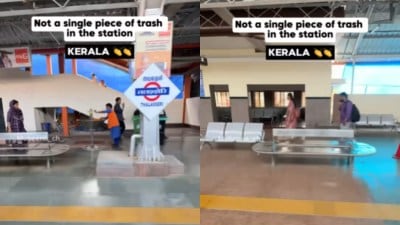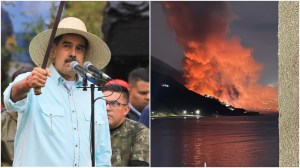Baghliar may throw open Indo-Pak dam
Between the long and bitter silences that currently constitute the India-Pakistan relationship, a couple of events this week have begun to g...

Between the long and bitter silences that currently constitute the India-Pakistan relationship, a couple of events this week have begun to glitter like milestones. Such as a visit by the Pakistan Indus Waters Commission from October 19-23 to conduct an on-site inspection of the Baghliar dam that is being constructed on the Chenab river in Jammu.
Foreign Office sources here said they had given permission for the Pakistani team to visit after two years 8216;8216;in continuation of the Prime Minister8217;s peace initiative with Islamabad.8217;8217;
The visit comes in the wake of a series of diplomatic notes and demarches made both here and in Islamabad, demanding that the Indus waters team be given the right to conduct an on-site inspection of the dam under the World Bank-sponsored 1960 Indus Waters Treaty.
At a meeting with the Indian side in May, mere weeks after the PM launched his Pakistan peace initiative in Srinagar, the Pakistani side said if it was not given the right to inspect, it would invoke a 8216;8216;neutral expert8217;8217; and take the issue to international arbitration.
If that had happened, sources said, it would have been the first time since 1960 when the treaty came into force that one country would be internationalising a water dispute.
Next week8217;s visit is in concession to this request and separate from the annual meeting that alternately takes place between India and Pakistan, the sources added.
Meanwhile, the other bright star in the clouded bilateral relationship is the meeting this week in Kathmandu of officials from all SAARC countries, including India and Pakistan.
All sides are likely to exchange new tariff lists to expand trade as well as come to conclusions about putting in place a framework treaty for a SAARC free trade zone.
Those measures are, in turn, thought to constitute a key building block for the SAARC summit that is set to take place in Islamabad from January 4 to 6, 2004.
Official sources here also said the Pakistani team had been denied permission because the 8216;8216;security situation was bad in the region. Not only has the situation now become better, but we are making this gesture in continuation of the PM8217;s peace initiative with Pakistan,8217;8217; they said.
Indian technical experts said they were 8216;8216;fully convinced8217;8217; that the Government had abided by the design parameters allowed under the treaty.
But according to the Pakistani side, since India was the upper riparian state, the dam on the Chenab would affect water flows into the lower riparian, that is Pakistan.
The Pakistani team members who will visit India are Pakistan Commissioner for the Indus Waters Commission Syed Jamaat Ali Shah; Izhar-ul Haq, advisor to the commission; Bashir Ahmed, consultant to the commission and Shiraz Jameel Memon, joint commissioner. Their host in India will be the Indus Waters Commissioner Bhardwaj.
- 01
- 02
- 03
- 04
- 05































